Protecting ‘Our’ Children in the Wake of the Michael Dunn Verdict
When Florida shooter Michael Dunn heard his verdict Saturday, he may have been shocked to find that he faces at least 60 years in prison for the attempted murder of three young black men.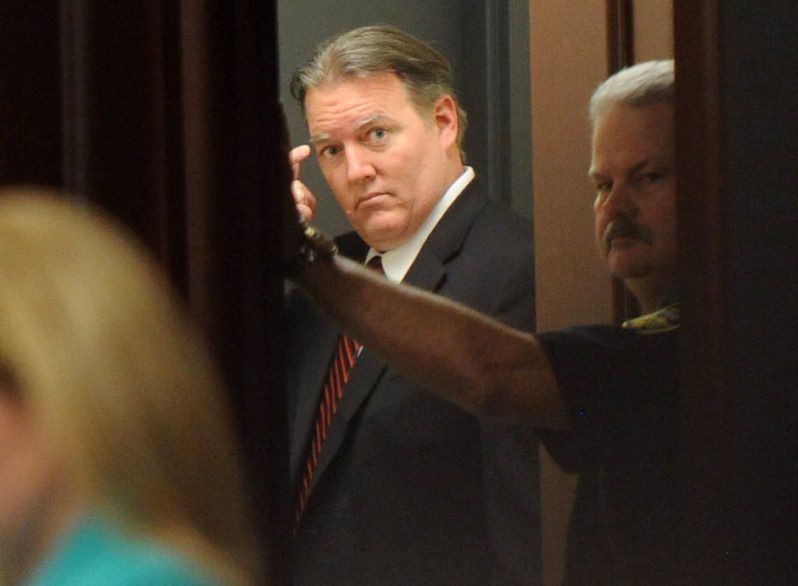 Michael Dunn leaves the courtroom after the verdict is read in Jacksonville, Fla., on Feb. 15. (The Florida Times-Union, Bob Mack, Pool)
Michael Dunn leaves the courtroom after the verdict is read in Jacksonville, Fla., on Feb. 15. (The Florida Times-Union, Bob Mack, Pool)
When Florida shooter Michael Dunn heard his verdict Saturday, he may have been shocked to find that he faces at least 60 years in prison for the attempted murder of three young black men. Judging by letters he wrote while in prison, Dunn fully expected to be exonerated for shooting nine bullets into a parked car, endangering the lives of the four black youth in it, and killing one of them — a 17-year-old named Jordan Davis.
Writing to his fiancee and several family members, Dunn expressed certainty that “I will be acquitted or found not guilty,” and even made plans to file a lawsuit against Florida for supposed violations of his rights.
Given the acquittal of George Zimmerman in the shooting death of Trayvon Martin, it surprised me that Dunn was found guilty of anything. It is a testament to how low a bar we have set for justice for people of color — particularly young black men — that a conviction, any conviction at all, could feel like a victory.
But even though he will likely remain in prison for the rest of his life, Dunn was not convicted of the first-degree murder charge against him in the death of Davis (about whom I have previously written). He was convicted on three counts of attempted second-degree murder regarding the three surviving youth — each count comes with a 20-year minimum sentence — and on one count of shooting into an occupied vehicle. On the first-degree murder charge, the jury could not come to a decision after four days of deliberations, leading the judge to declare a mistrial on that count.
What if Davis had been the only one in the car? Would Dunn have walked free, or simply been charged with shooting into an occupied vehicle? Despite the fact that Davis’ parents may rest assured Dunn will probably spend the rest of his life behind bars, he will not be legally held accountable for their son’s death.
The verdict has sparked deep soul searching, particularly among black commentators in the media, many of whom are questioning how black parents can keep their children safe. Mary C. Curtis, writing for The Washington Post, mulled, “My husband and I have been thinking of little else since the verdict was announced, and wondering what parents can do, besides avoid Florida.”
Independent journalist and author of “No Doubt: The Murder(s) of Oscar Grant,” Thandisizwe Chimurenga, reflected on her Facebook page the collective rage and helplessness many African-Americans are feeling after Dunn’s verdict, even if they are not parents themselves:
How do “we” keep “our” children safe? I speak in the collective sense because I have never given birth to biological children of my own.
People who have given birth to (and raised) children tell us all the time, we don’t “really” know what it’s like, since we have not given birth and/or are not raising children. And that is true. I don’t know the pain of childbirth, or how you “forget” about that pain when you see your newborn child for the very first time. I don’t know the enormous responsibility involved in trying to prepare that tiny being for adulthood.
And I certainly don’t know the fear and anguish mothers and fathers have when they “hear” about Renisha and Oscar and Trayvon and Jonathan and Jordan. I don’t know what it feels like deep down in their stomach. I can imagine it; if they tell me what it feels like, I can nod my head and say “uh huh,” but I don’t “know” it.
How do “we” keep it from happening again? To “our” collective children? I mean, other than having “The Talk”? Since I don’t have any biological children, it is the easiest thing in the world for me to sit back and criticize “The Talk” as caving in to murderous white supremacy. It is. It is caving in to murderous white supremacy. And it is easy-peasy for me to say that.
If the legal system seems rigged to protect white shooters of unarmed African-Americans, it is not surprising that journalist Tonyaa Weathersbee, writing on CNN, concluded, “I guess now any random white man can confront a black teenager whose style of dress or music he doesn’t like or views as suspect. And when that teenager doesn’t submit to him, or responds to him in a confrontational manner, or in a way that any rebellious teenager is apt to respond, then it’s perfectly fine to exterminate him.” Florida’s Stand Your Ground law, which was included in the jury instructions in Dunn’s trial, may have resulted in the panel’s indecision on the first-degree murder charge in Davis’ death. Legal experts have told Al-Jazeera America that the controversial law emboldens shooters and can confuse juries.
But just how emboldened was Dunn when he shot into a car filled with black teenagers listening to what he called “thug music”? The letters he wrote to his fiancee and family members paint a picture of a gun rights activist with sharply prejudiced views against African-Americans and deep suspicion of government and the justice system who felt he was the victim of “reverse racism.” His profile is wholly consistent with extremist Republican rhetoric commonly spouted on Fox News. In fact, Dunn’s views on African-Americans are so racially charged, it is a wonder he did not provoke a violent altercation sooner.
In one of his letters, Dunn complained about “how racist the blacks are up here. The more time I am exposed to these people, the more prejudiced against them I become.”
In a later note, he added, “I’m really not prejudiced against race, but I have no use for certain cultures. This gangster rap, ghetto-talking, thug ‘culture’ that certain segments of society flock to, is intolerable.”
Dunn’s use of the word “thug” to describe African-Americans is prolific, particularly in reference to Davis as “the thug I had to defend myself against,” and Davis’ friends as “[t]he 3 other thugs that were in the car are telling stories to cover up their true ‘colors.’ ” Dunn described his fellow inmates in similar terms, noting, “The jail is full of blacks and they ALL act like thugs.” In writing to his parents about his legal strategy, he suggested they find “an expert on the thug subculture, especially on violence.”
Dunn used a term that is increasingly common in contemporary American society in which the word “thug” is a clearly coded pejorative for African-Americans, replacing older, uglier epithets. Black Seattle Seahawks player Richard Sherman recently found himself the target of the T-word after publicly mocking a rival. Sherman shot back by insightfully reflecting that the word “thug” is “an accepted way of calling somebody the N-word now.”
Dunn was also convinced that he was the victim of “reverse racism,” a notion invoked by many right-wing commentators and activists to claim that whites are in fact the victims of racial discrimination. Dunn wrote in his letters, “It’s spooky how racist everyone is up here and how biased towards blacks the courts are.” According to him, it’s really African-Americans who wield power, writing, “The blacks seem to be calling the shots in the media and the courts.” Confident that he would be acquitted, Dunn made plans for his release, promising, “I’m going to find a slimy civil-law lawyer and sue this county for the reverse discrimination.”
But Dunn went further in his letters, justifying armed violence against blacks and invoking standard right-wing stereotypes of blacks as welfare recipients and violent criminals, writing, “Eventually we as a society will wake up and realize that we need to arm ourselves, as the government welfare programs have produced a culture of entitlement for a certain segment of our society. These fools feel entitled to live above the law and do violence at will. Remember when your mom was robbed? At gunpoint? Black thug.”
In a separate letter, he repeated his fantasy of armed violence against blacks, writing, “I think the legal system is scared of a backlash anytime there is a white-on-black incident, but don’t get excited when it’s black-on-black, or even black-on-white. This may sound a bit radical, but if more people would arm themselves and kill these fucking idiots when they’re threatening you, eventually they may take the hint and change their behavior.”
Perhaps we are fortunate to be able to see inside the mind of a person like Michael Dunn, ugly as it is. It clarifies what the struggle for justice and human rights of people of color, particularly young black men, is really about.
Articulating the hard work that needs to be done, Chimurenga made an impassioned call to action in the wake of the verdict, writing that the only solution to Dunn’s mindset is: “Organizing our households and our communities around non-violent, restorative, transformative justice principles for the internal antagonisms that we have, and organizing for self-defense — which is a human right by the way — against external threats like creepy-ass ‘crackers’ [to quote Trayvon Martin] who don’t like our music or the fact that we need help after a car accident. This is the contribution I want to make so that all of “our” children are safe. This is the work that I want to do.”
Amen.
Your support matters…Independent journalism is under threat and overshadowed by heavily funded mainstream media.
You can help level the playing field. Become a member.
Your tax-deductible contribution keeps us digging beneath the headlines to give you thought-provoking, investigative reporting and analysis that unearths what's really happening- without compromise.
Give today to support our courageous, independent journalists.
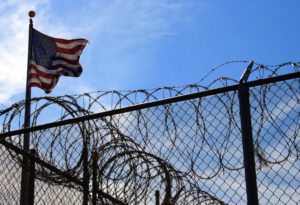
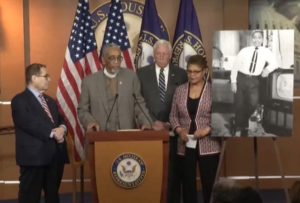

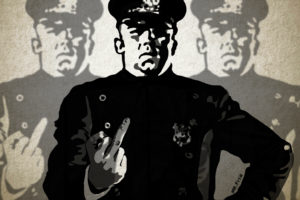

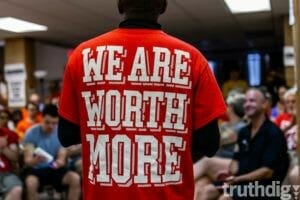
You need to be a supporter to comment.
There are currently no responses to this article.
Be the first to respond.